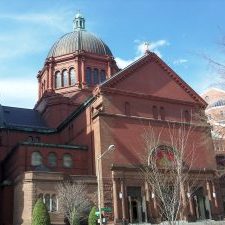 Prof. David Strifling rightly draws our attention to what he terms “the quiet revolution” taking place in Wisconsin administrative law. As deputy legal counsel for the governor several years ago, I was privileged to be a foot soldier in that revolution, which sought to reinvigorate core constitutional principles around the separation of powers, government transparency, and executive responsibility. Thus far, the revolution has primarily been fought in the legislature (primarily through 2011 Act 21 and 2017 Act 57) and the executive branch (especially the Governor’s Executive Order 50 and the Attorney General’s opinion 01-16).
Prof. David Strifling rightly draws our attention to what he terms “the quiet revolution” taking place in Wisconsin administrative law. As deputy legal counsel for the governor several years ago, I was privileged to be a foot soldier in that revolution, which sought to reinvigorate core constitutional principles around the separation of powers, government transparency, and executive responsibility. Thus far, the revolution has primarily been fought in the legislature (primarily through 2011 Act 21 and 2017 Act 57) and the executive branch (especially the Governor’s Executive Order 50 and the Attorney General’s opinion 01-16).
The Wisconsin Supreme Court will soon have its opportunity to join and accelerate the revolution when it hears and decides Tetra Tech v. DOR (Court of Appeals decision) and LIRC v. DWD (Court of Appeals decision) (scheduled for argument Friday, December 1). These cases both present core questions of agency deference, institutional competence, and judicial power – in short, the opportunity for the Court to supplant its current doctrine with a new approach. As evidence of the sea change that these cases could mark, consider that the Wisconsin Institute for Law & Liberty, Wisconsin Manufacturers & Commerce (leading 10 other business groups), and the Wisconsin Utilities Association all have filed amicus briefs in Tetra Tech making thoughtful arguments as to the value and validity of agency deference.
I have recently posted to SSRN a paper that delves into the past and future of deference in Wisconsin’s jurisprudence. Originally intended to complete my trilogy of Marquette Law Review articles on interpretation of the Wisconsin Constitution and Wisconsin statutes, the timeliness of these cases has instead prompted a shorter essay which tackles the important questions raised in Tetra Tech with an eye toward the fundamental principles which should guide the Court’s decision. Ultimately I conclude that the current scheme conflicts with constitutional first principles, the statutes, and common sense. I believe the Court should deep-six its doctrine and start anew with the standards set forth in Wisconsin’s administrative procedures act (Ch. 227). Please read the essay to see why. And we’ll all be watching closely as these cases move forward. Just because the revolution won’t be televised (I’ve never seen an episode of Law & Order or Suits concerning administrative law) doesn’t mean it won’t have significant implications for law in our state.
Daniel Suhr is a 2008 graduate of the Marquette University Law School.
 [The following is a guest post from Daniel Suhr ’08, a prior guest alumni contributor to the Blog.]
[The following is a guest post from Daniel Suhr ’08, a prior guest alumni contributor to the Blog.]
